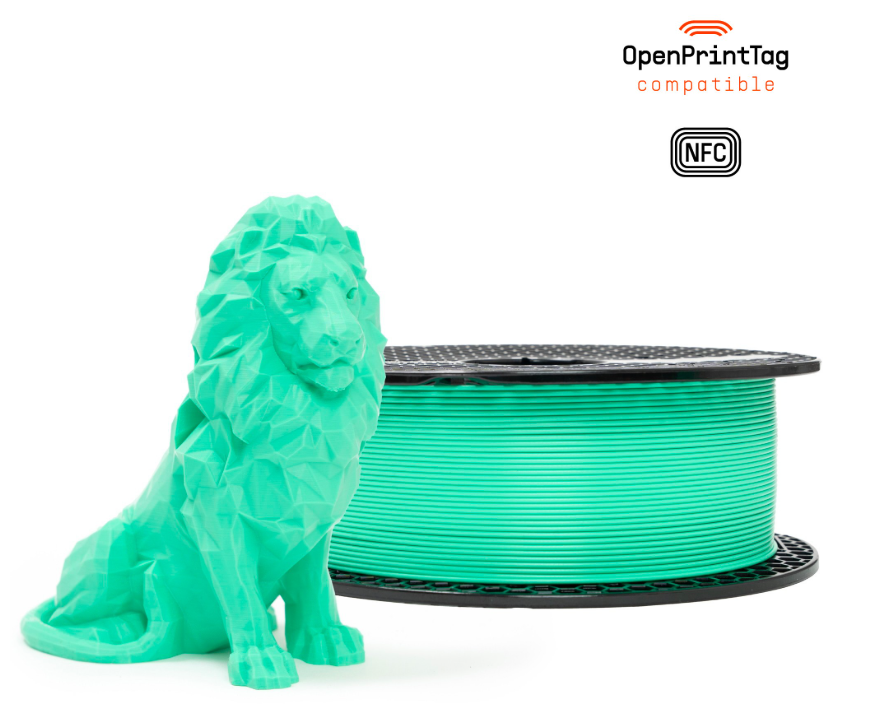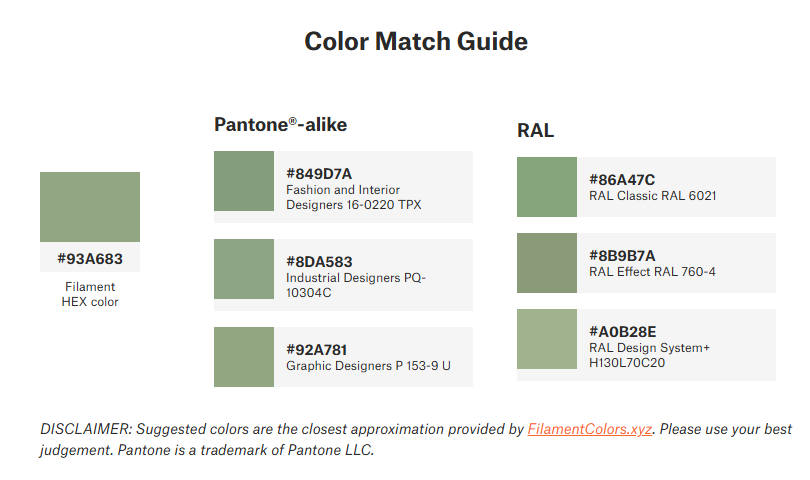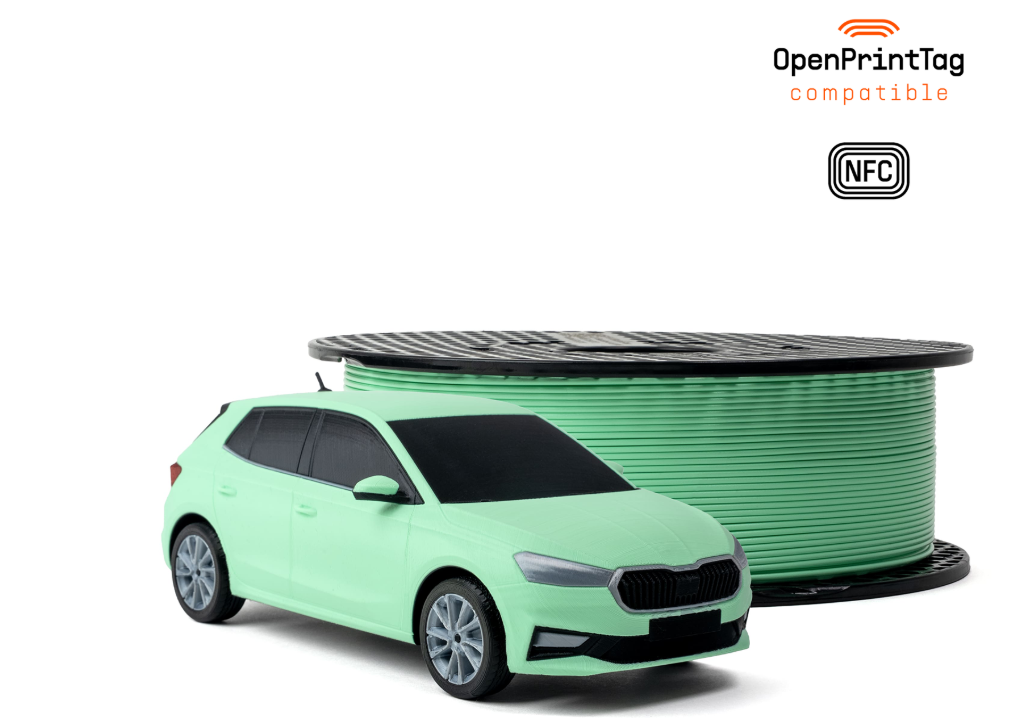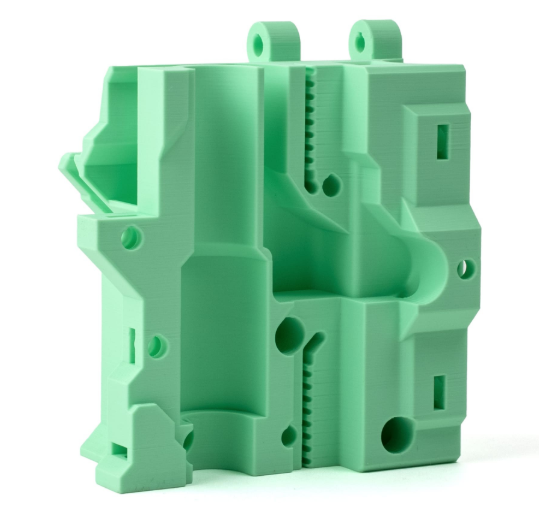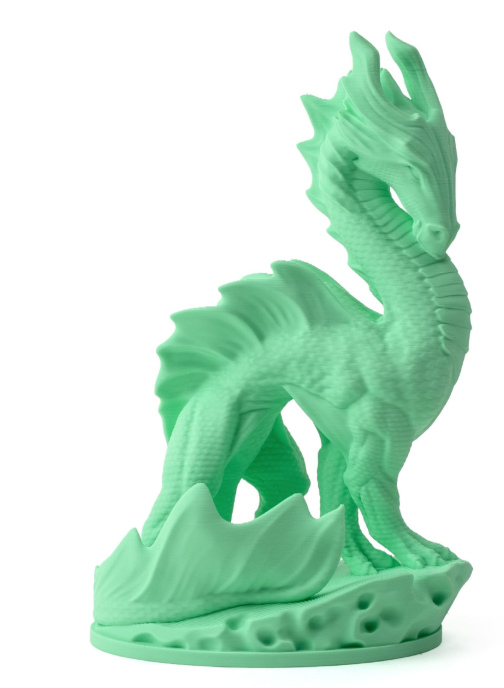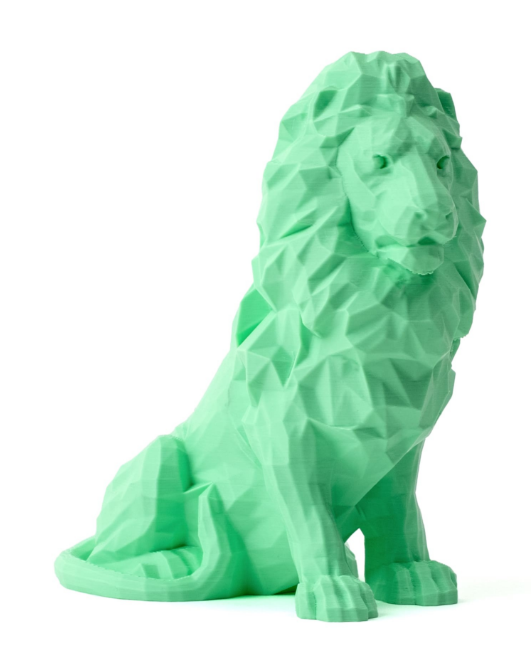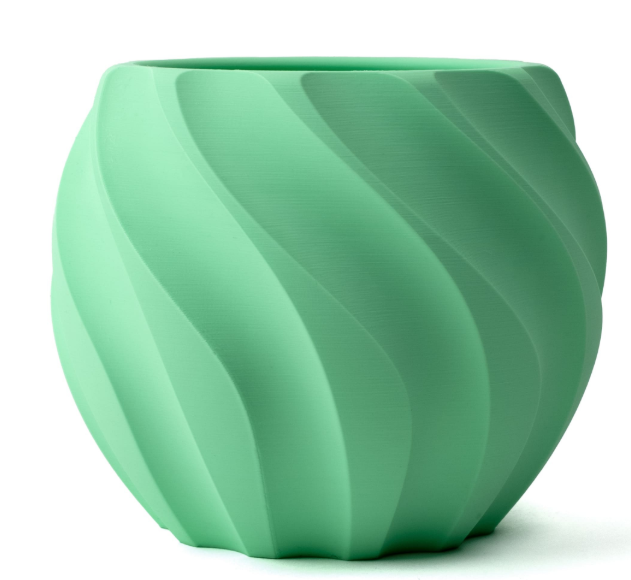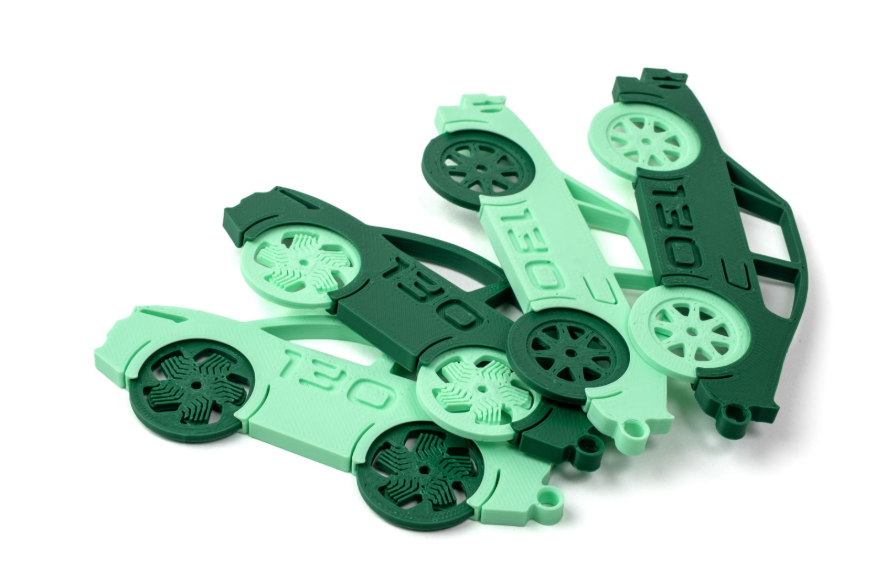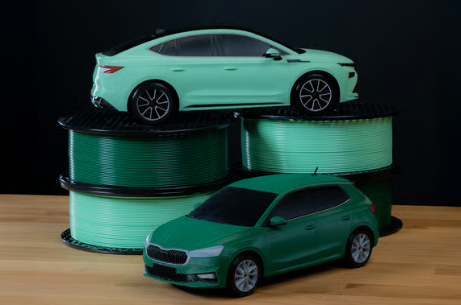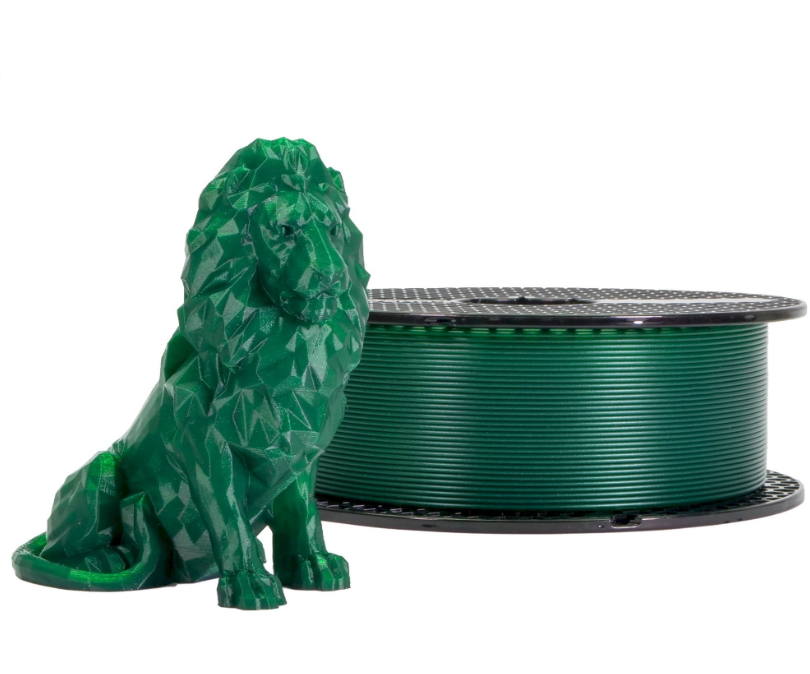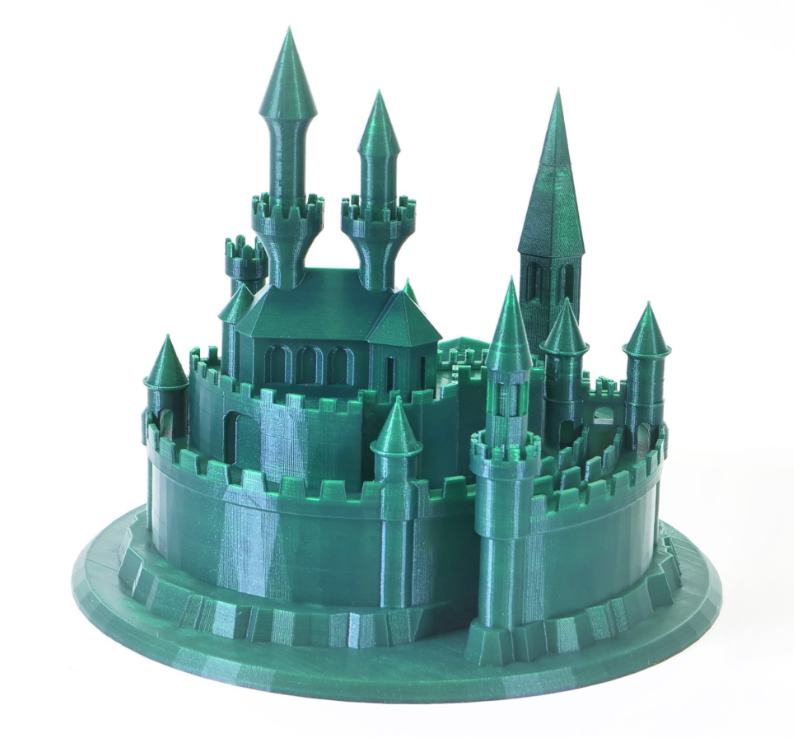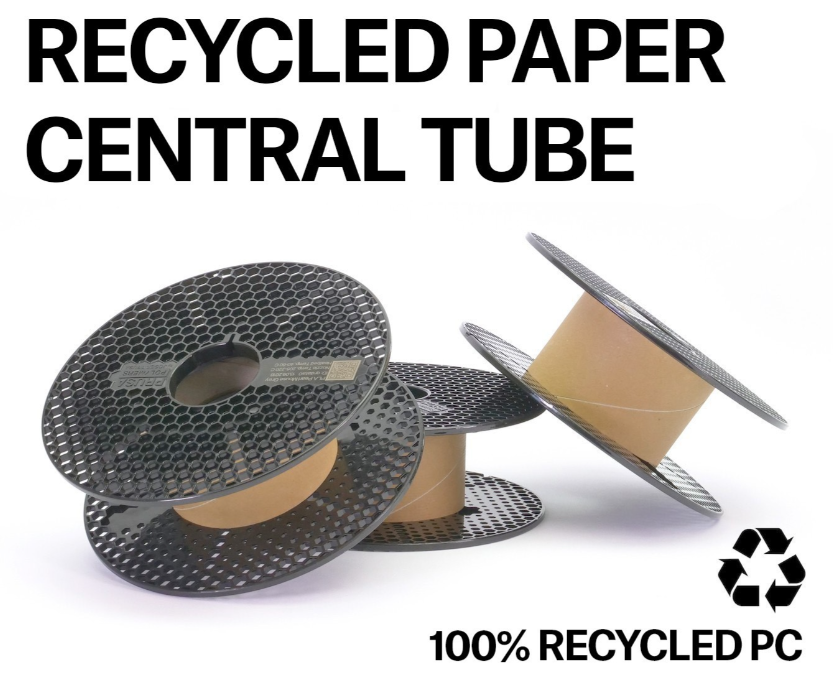 Image 1 of 6
Image 1 of 6

 Image 2 of 6
Image 2 of 6

 Image 3 of 6
Image 3 of 6

 Image 4 of 6
Image 4 of 6

 Image 5 of 6
Image 5 of 6

 Image 6 of 6
Image 6 of 6







Prusament PLA Opal Green 1kg NFC Spool
About PLA
PLA is the easiest material to print. It is inexpensive and suitable for beginners and advanced users alike. It is capable of printing detailed models, figures, and quick prototypes that don’t require increased mechanical, chemical, or temperature resistance.
PLA is the most widely used filament, known for its great looks and ease of printing. It is an excellent choice for large objects because of its low thermal expansion, which results in minimal warping. At the same time, its low melting temperature makes it suitable for small parts as well.
While PLA may not be as tough or durable as some advanced materials, its versatility makes it ideal for a range of applications, including large objects, miniatures, concept models, and prototypes that don’t need to be extremely durable.
Printing Setup
Nozzle 215 °C
Heatbed 50-60 °C
Recommended Steel Sheet Smooth PEI / Textured / Satin
Before printing, learn about print surface preparation in our dedicated article and material table.
Basic Attributes
Easy to print
Suitable for prints of any size
Hard
Low warping
Brittle
Poor high-temperature resistance
Difficult to sand (hard material, melts easily)
New spools equipped with OpenPrintTag
Prusament filaments are wound on a redesigned spool that introduces several improvements for an even better printing experience, starting in October 2025. The new spool features a simple locking mechanism that makes disassembly quick and easy, allowing effortless refills. It also stays secure during filament drying, even at higher temperatures. With its slimmer dimensions, the spool ensures compatibility with a wide range of multi-color and multi-material printing systems.
Every new Prusament spool now comes with a fully rewritable NFC tag powered by the OpenPrintTag standard. It’s designed to work across brands and ecosystems. It is free to use, free to extend, and open for anyone to build upon. Most importantly, it works entirely offline. All essential data is stored directly on the tag. Your printer can recognize the spool instantly, with no dependence on cloud services or vendor lock-ins. The OpenPrintTag attached to your Prusament spool contains essential data about the material and can be read with the Prusa mobile app.
What can you expect?
Prusament PLA is Prusas own in-house made filament. The whole manufacturing process is closely monitored and tested - we guarantee ±0.02mm precision (± 0,03 for blends) and highly-consistent colors. You can inspect parameters of every spool made at prusament.com. Check the sample spool!
The whole manufacturing process is closely monitored and tested – string diameter, color consistency, and mechanical properties – to make sure that every spool is perfect.
± 0.02 mm Manufacturing Guaranteed Precision
Prusa believe the industry standard of 0.05 mm isn’t sufficient for perfect 3D printing. Instead, they guarantee ±0.02mm precision (± 0,03 for blends) and highly-consistent colors in our filaments.
Prusa are the only manufacturer that gives the option to inspect parameters of every filament spool. Scan a QR code on the spool to see all details online (check the sample spool).
Beginners tips & tricks
Popular among both beginners and advanced users
PLA is the easiest-to-print filament we make. It’s reliable and it doesn’t require any print preparations or difficult post-processing methods. If you’re new to 3D printing, it’s best to start with PLA before using other materials.
Sanding
When post-processing PLA, it’s better to use wet sanding. Without water you’ll quickly start heating the plastic by friction, it will melt locally and deform. Also, without water, the sanding material would clog easily.
Gluing
PLA can be glued with many types of glue. We recommend using superglue for most of the parts. Certain PLA filaments may be also glued using acetone, however, it strongly depends on the various additives and colors used.
Downloads
Prusament PLA - Technical Data Sheet 2 MB
Prusament PLA Blend - Technical Data Sheet 2 MB
Prusament PLA - Safety Data Sheet 240 kB
Certificate - UL2904 666 kB
About PLA
PLA is the easiest material to print. It is inexpensive and suitable for beginners and advanced users alike. It is capable of printing detailed models, figures, and quick prototypes that don’t require increased mechanical, chemical, or temperature resistance.
PLA is the most widely used filament, known for its great looks and ease of printing. It is an excellent choice for large objects because of its low thermal expansion, which results in minimal warping. At the same time, its low melting temperature makes it suitable for small parts as well.
While PLA may not be as tough or durable as some advanced materials, its versatility makes it ideal for a range of applications, including large objects, miniatures, concept models, and prototypes that don’t need to be extremely durable.
Printing Setup
Nozzle 215 °C
Heatbed 50-60 °C
Recommended Steel Sheet Smooth PEI / Textured / Satin
Before printing, learn about print surface preparation in our dedicated article and material table.
Basic Attributes
Easy to print
Suitable for prints of any size
Hard
Low warping
Brittle
Poor high-temperature resistance
Difficult to sand (hard material, melts easily)
New spools equipped with OpenPrintTag
Prusament filaments are wound on a redesigned spool that introduces several improvements for an even better printing experience, starting in October 2025. The new spool features a simple locking mechanism that makes disassembly quick and easy, allowing effortless refills. It also stays secure during filament drying, even at higher temperatures. With its slimmer dimensions, the spool ensures compatibility with a wide range of multi-color and multi-material printing systems.
Every new Prusament spool now comes with a fully rewritable NFC tag powered by the OpenPrintTag standard. It’s designed to work across brands and ecosystems. It is free to use, free to extend, and open for anyone to build upon. Most importantly, it works entirely offline. All essential data is stored directly on the tag. Your printer can recognize the spool instantly, with no dependence on cloud services or vendor lock-ins. The OpenPrintTag attached to your Prusament spool contains essential data about the material and can be read with the Prusa mobile app.


